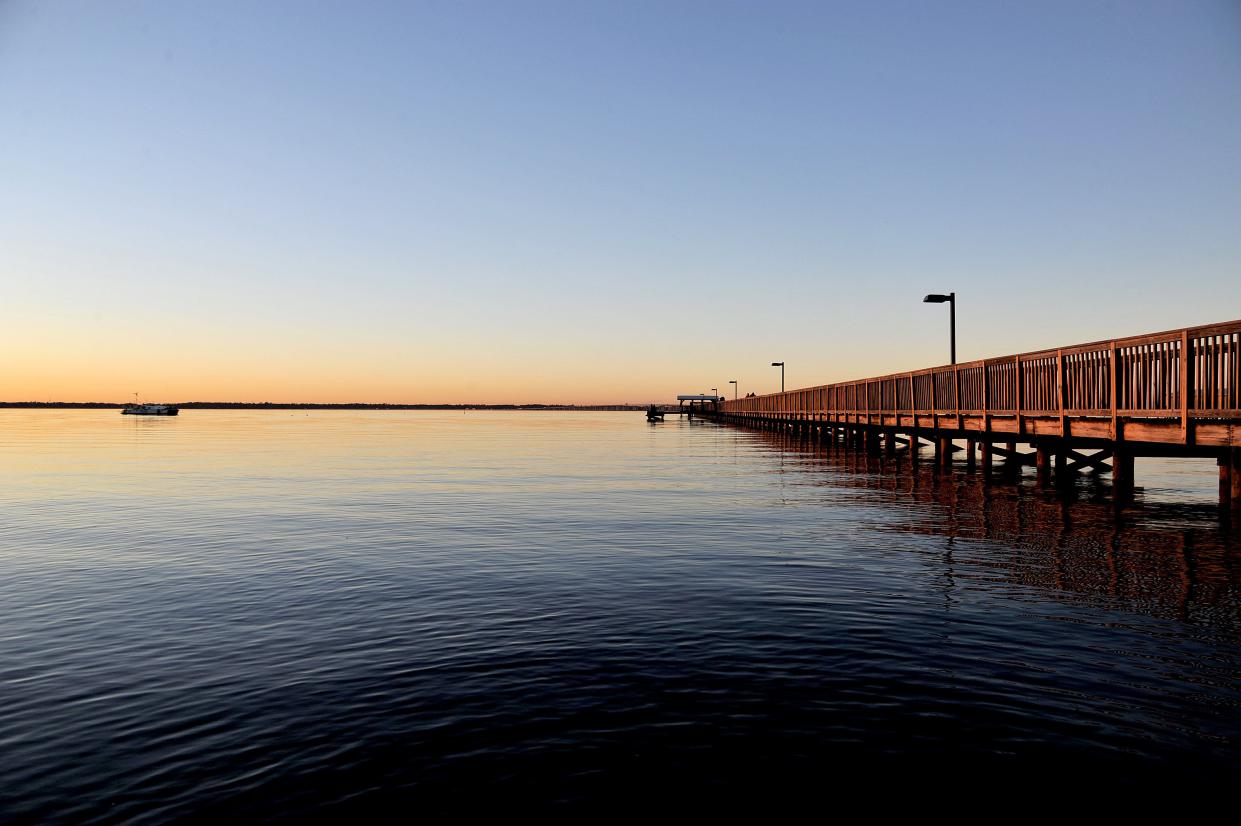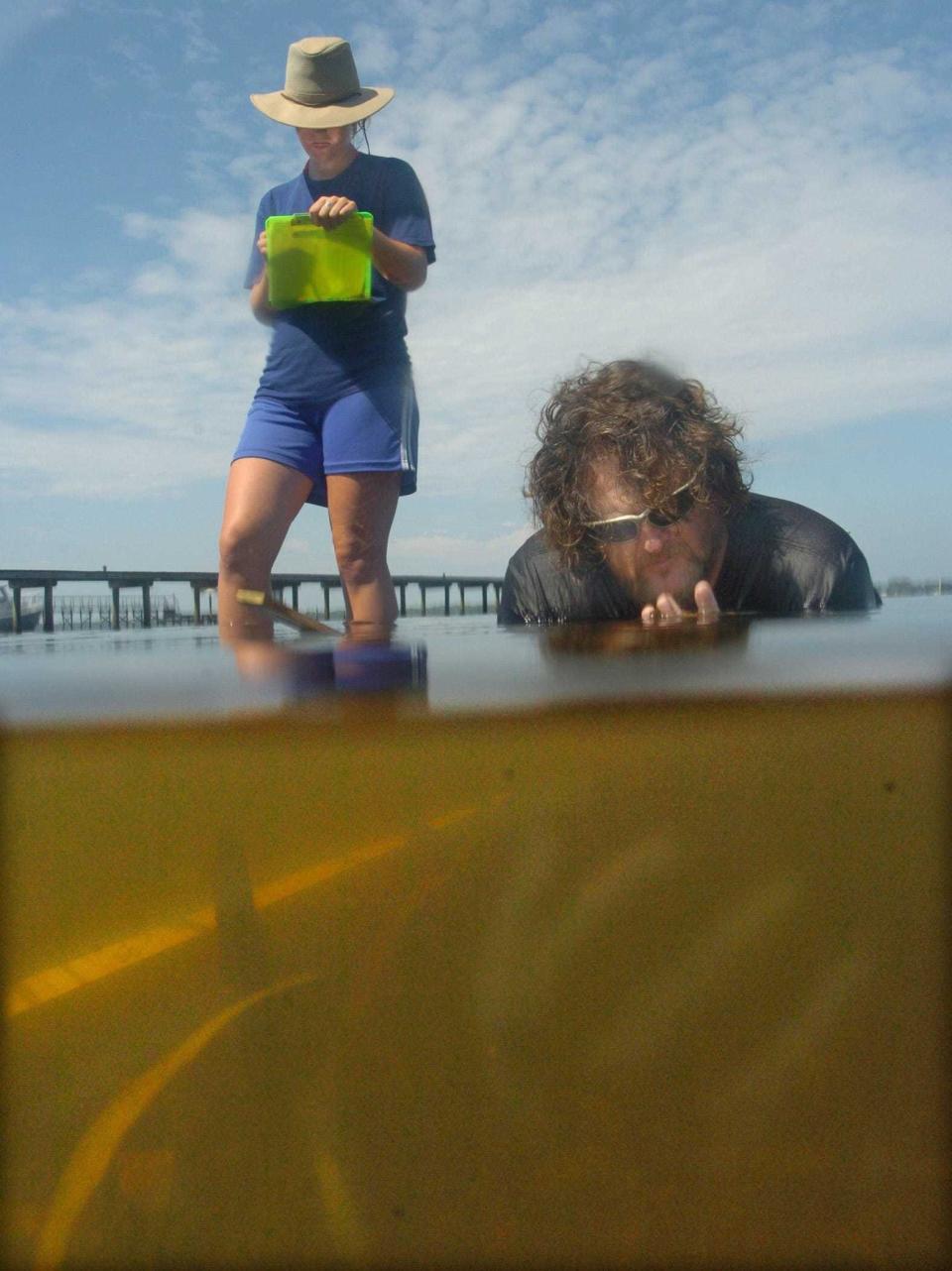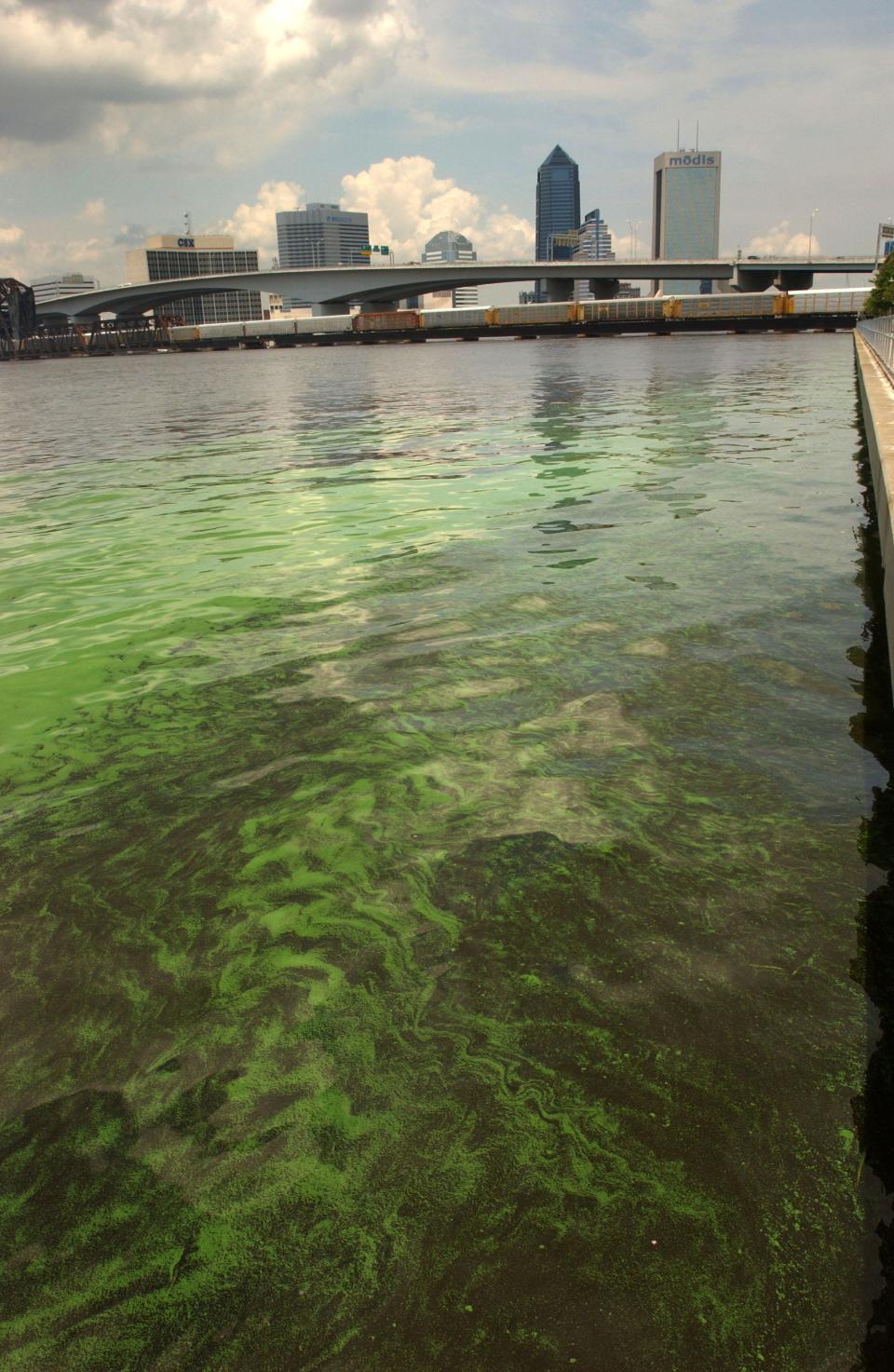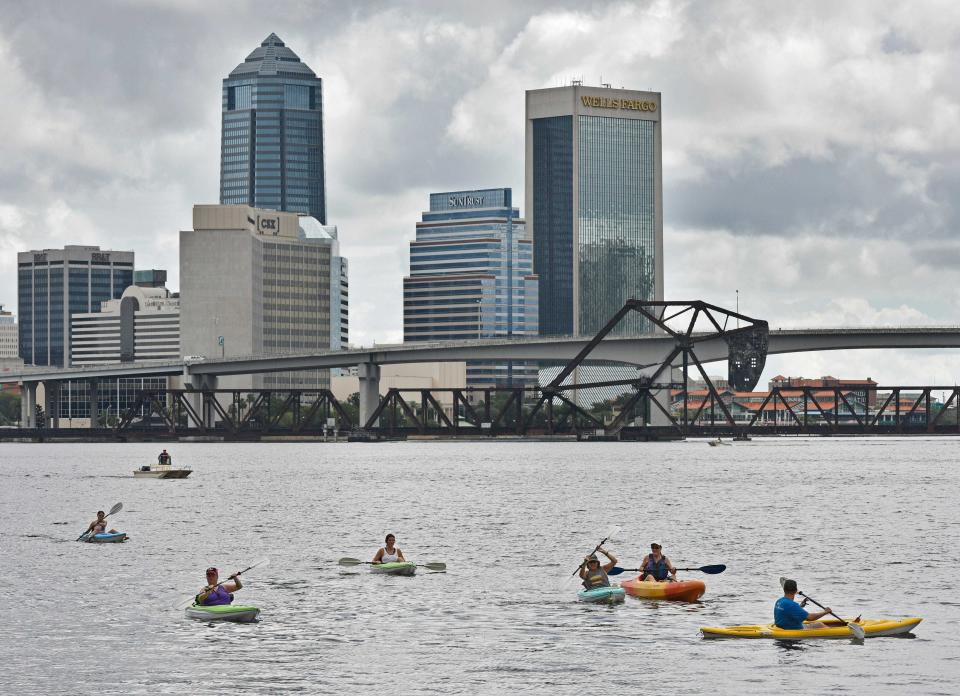Jacksonville has 'need for concern' for health of St. Johns River, scientists' report says

Data about the St. Johns River show “the need for concern in many aspects of the health of the river,” a yearly report from a team of environmental scientists concluded Friday.
The 2022 State of the River Report, a 300-plus page compendium of metrics about the river’s lower basin in Northeast Florida, highlighted problems including tributaries contaminated with fecal bacteria, long-term increases in salinity, loss of wetlands and declines in underwater grass beds that are important for fisheries.
The report, the 15th developed by researchers in Jacksonville and at colleges farther afield, also reported improvements to some environmental yardsticks, including improving conditions for eagles, wood storks and mullet.

It also detailed broad decreases in waterways’ levels of excess nitrogen, which nurtures potentially toxic algae that’s already a chronic problem.
But the report found as much bad news as good and said the river and the community around it face harmful influences both at home and carried on the tides.
“A significant amount of the nutrients originate from upstream stream sources outside of Jacksonville, but another major contribution comes from failing sewage pipes and septic tanks in Duval County and throughout the basin,” Jacksonville University scientist Gerry Pinto, lead researcher on the report, said in written comments released with the findings. “Also, the effects of warming climate and rising seas exacerbates the situation, allowing more pollution to flow into the tributaries.”
St. Johns flooding: Severe flooding of St. Johns River post-Hurricane Ian keeps some businesses shut down
And: Astor residents face flooded streets, homes as St. Johns River rises
The report linked elements of the river’s health to decisions made both globally and locally to reduce effects of climate change.

“The future of this region depends on how successful and how quick efforts are to curb and eliminate the burning of fossil fuels,” the report said, adding later that “the worst case of seven feet or more of sea level rise, assuming uninterrupted burning of fossil fuels for the rest of the century, would be catastrophic for Northeast Florida.”
The report added that “cutting back on carbon emissions is a non-starter among Jacksonville’s political leaders at this time, as it is with Florida’s leaders,” leaving questions of environmental health unresolved.
Funded by Jacksonville’s Environmental Protection Board, the report brings together work by scientists at Jacksonville University, the University of North Florida, Florida Southern College in Lakeland and West Chester University of Pennsylvania documenting conditions in the river’s main stem and more than two dozen tributaries that are addressed individually.

The report combines data collected by the city, Florida’s Department of Environmental Protection, the St. Johns River Water Management District, the Florida Fish and Wildlife Commission and individual researchers.
Report findings are scheduled to be presented Tuesday at 4 p.m. at an online event and panel discussion organized by WJCT Public Media, with separate discussions of the findings planned next month.
This article originally appeared on Florida Times-Union: Report: Wetland losses, shrinking seagrass among St. Johns River woes

